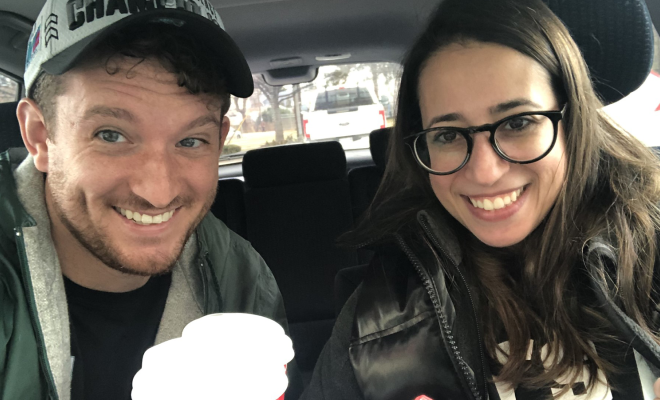The existential realities of living with a chronic, progressive illness didn’t really kick in until my late teens. This was the mid-2000s — the era of Razr flip phones, iPods, primitive Facebook, low rise jeans, and a special optimism about the future. At this time, I was in love with ballet. Its structure gave my life stability, and mastering new choreography boosted my self-confidence. I could assert control over my body with discipline, and perfectionism became my way of coping.
I learned later in life that perfectionism is often rooted in shame. It arises out of anxiety, overcompensating for a belief that I wasn’t enough. My perfectionism about ballet was subconsciously rooted in shame about the effects of cystic fibrosis — my height, frequent digestive issues, living with uncertainty. There was no space for a disability in the ballet world. I learned that I must excel and meet high standards to be worthy of love and acceptance. My teachers — who were professional dancers — would tell us stories of performing while they were sick, not allowing anything to hold them back. The pressure that developed from this mindset morphed me into a rigid gal. I refused to miss ballet — even skipping important family events and prioritizing it over friendships.
But despite my determination to progress, the ballet world’s message to me was “you don’t belong” every time they cast someone who was taller than me or thinner than me. I’m not even five feet tall, and I’m disproportionately top heavy — I didn’t fit the ballet mold. But I knew I was good at it. I could jump really high; my petite allegro was on fire; I could push beyond my body’s limit and become expansive on stage. When I danced, there was no CF. It was just me.
My mid-20s were a whirlwind that reshaped my identity and helped me become more integrated in other areas of my life. College graduation, my first boyfriend, grad school, developing pneumonia, extended hospital stays, disease progression, and somehow, marriage. During this time, I had stopped dancing, partially due to my declining health and partially to focus on other things. This is also when I was given the opportunity to participate in a then-experimental CFTR modulator drug called Trikafta®.
My husband and I were driving back from a trip to Arizona when my doctor called to tell me that another patient dropped out of the clinical trial for Trikafta, and he offered me the spot. After our road trip back east, I started on what I realized later was the placebo. For the next six months, my health declined as I tried to manage an already established infection on continuous rounds of IV antibiotics. When the clinical trials ended and I finally rolled over onto the real drug combination, I waited hopefully to experience some improvements in my health. I coughed up a ton of junk over two weeks. When I retested my lung function, my whole care team was amazed at how much it had increased. Trikafta was working.
Several months later, with a renewed sense of stability, I got my first full-time job as a school social worker. And BOOM — the world shuts down as reports of COVID-19 were making headlines. I had only worked in the school building for two months before moving to a remote position for the next two years. As the months dragged on, I was losing that spark Trikafta had given me. I was coming down from the excitement of having a new job, new life, new me, where anything felt possible. Normally, I would have appreciated the chance to stay home and focus on my treatments. But the sudden juxtaposition of launching into my 30s with more energy than ever and virtually no CF symptoms while the world was keeping us inside absolutely killed my endorphins.
Quarantine forced us to develop new ways to cope by getting out in nature, taking long drives, walking in new neighborhoods — safe activities that helped break up the monotony of remote work. In the isolation, my social circle shrunk.
My sense of self became blurry. I felt more invisible than ever before. So much of my identity before revolved around CF. It was the thing that bound me, the glue that held each step I took, the through line in my story. So now, I saw my identity fractured as Trikafta had given me so much opportunity, but the world blocked it and kept me confined.
At the beginning of my remote work, I was burned out from the new job and felt relieved to be home. Since then, I’ve been in perpetual renegotiations with myself, trying to understand what kind of work I can physically and emotionally tolerate and what kind of adult life I deserve.
That is why, with the help of an Impact Grant, I want to provide a space for adults with CF who have struggled through similar challenges to find community as we navigate life on modulators. The messy, the uncomfortable, the positive — all of it is welcome. This kind of transition is hard, and the waves will continue to come, but with some new coping tools and a space to process whatever comes up, I hope to provide support, community, and connection to ride them out. It’s just a start to what will hopefully alchemize into something truly impactful in the long term.
Interested in sharing your story? The CF Community Blog wants to hear from you.





